5901 Botham Jean Blvd, Dallas, TX 75215
Why Teaching Kids About Recycling Matters
June 15, 2025Teaching kids about recycling is crucial for both our planet’s future and their development. By educating the next generation on recycling, we help reduce waste, conserve natural resources, and instill a sense of environmental responsibility from a young age. This foundation encourages children to become conscious citizens who actively care for our planet.
Children are naturally curious and eager to learn. Their minds are receptive to new concepts, making childhood the ideal time to introduce recycling practices. When kids understand the impact of waste on our environment, they develop awareness that extends beyond their homes into their schools and communities.
The benefits of teaching recycling extend beyond environmental protection. Children who learn about recycling develop critical thinking skills as they sort materials and understand resource conservation. They build confidence through meaningful contributions to household activities and gain practical knowledge about how their actions affect the world around them.
What Are the Basics of Recycling for Kids?
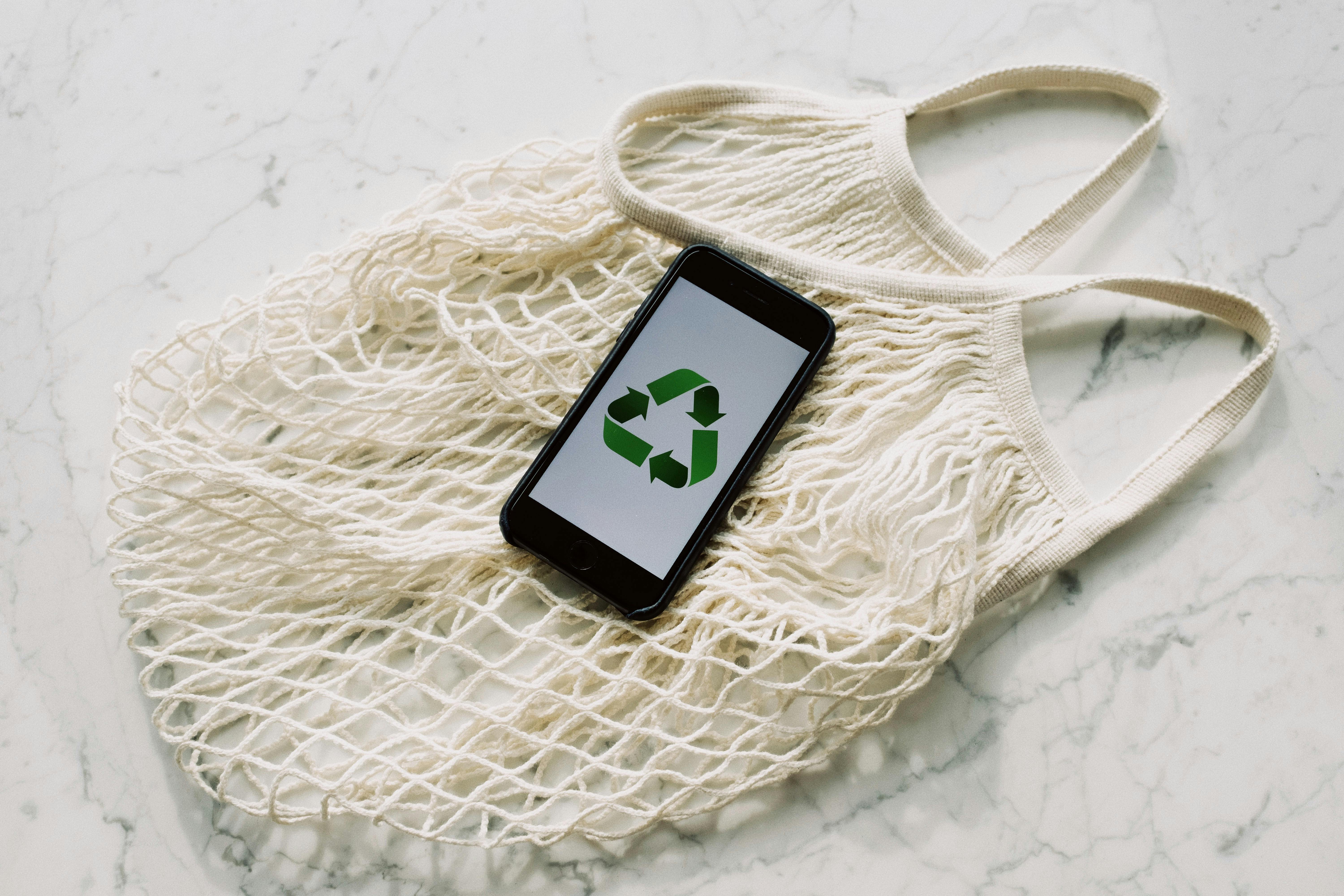
Teaching kids about recycling starts with simple, clear concepts. Children need to understand why recycling matters before they can become active participants. Explain that recycling helps keep our planet healthy by reusing materials instead of discarding them. This conservation approach preserves natural resources and reduces landfill waste.
When introducing recycling to children, focus on three key questions: Why is recycling important? What items can we recycle? How can kids help with recycling at home and school? These fundamental questions provide a framework for their understanding of waste management basics.
Why Recycling Matters
Help children grasp the environmental impact of recycling with age-appropriate examples. Show them visual aids like images of landfills filled with trash alongside pictures of clean, natural environments. This stark contrast helps kids understand the consequences of not recycling.
Use simple analogies that resonate with children. For instance, explain that the earth has limited resources just like their toy box has a limited number of toys. If they break all their toys, they won’t have any left to play with. The earth works similarly with its natural resources.
What Can Be Recycled
Children learn best through categorization. Teach them the main categories of recyclable materials: paper, plastic, glass, and metal. Create a visual guide with pictures of everyday items in each category. Include examples like paper (newspapers, notebooks, cardboard), plastics (water bottles, yogurt containers), glass (jars, bottles), and metals (soda cans, food tins).
Make this learning concrete by collecting clean examples of recyclable items for children to touch and examine. This tactile experience helps cement their understanding of different materials and their properties. You can create a simple matching game where kids sort these items into their proper recycling categories.
Waste Separation Made Simple
The concept of waste separation forms the foundation of practical recycling. Set up clearly labeled bins with pictures and words showing what goes in each container. Use different colors to help with visual recognition—blue for paper, yellow for plastics, green for glass, and red for metals.
Practice sorting activities to reinforce this knowledge. Start with obvious items before introducing more challenging examples like composite materials. A hands-on sorting game turns learning into play while building the habit of proper waste separation.
Making Recycling Visual and Engaging
Visual aids significantly enhance children’s understanding of recycling concepts. Create colorful posters showing the recycling journey—from used items to recycling facilities to new products. This helps children visualize the complete recycling loop and understand why their participation matters.
Videos showing what happens at recycling centers can fascinate children. Seeing massive sorting machines, compactors, and the transformation process helps them connect their small actions to the larger recycling system. These visual experiences make abstract concepts concrete and memorable.
Building Daily Recycling Habits
Children learn best through consistent practice. Create a simple recycling routine at home or in the classroom. Assign recycling helper roles to make children feel empowered and responsible. Celebrate their participation with recognition or simple rewards to reinforce positive behaviors.
Regular reminders help build lasting habits. Create a recycling checklist or chart that children can mark when they properly sort their waste. This visual tracking system helps them internalize recycling as part of their daily routine rather than a special activity.
How Can We Make Recycling Fun for Kids?
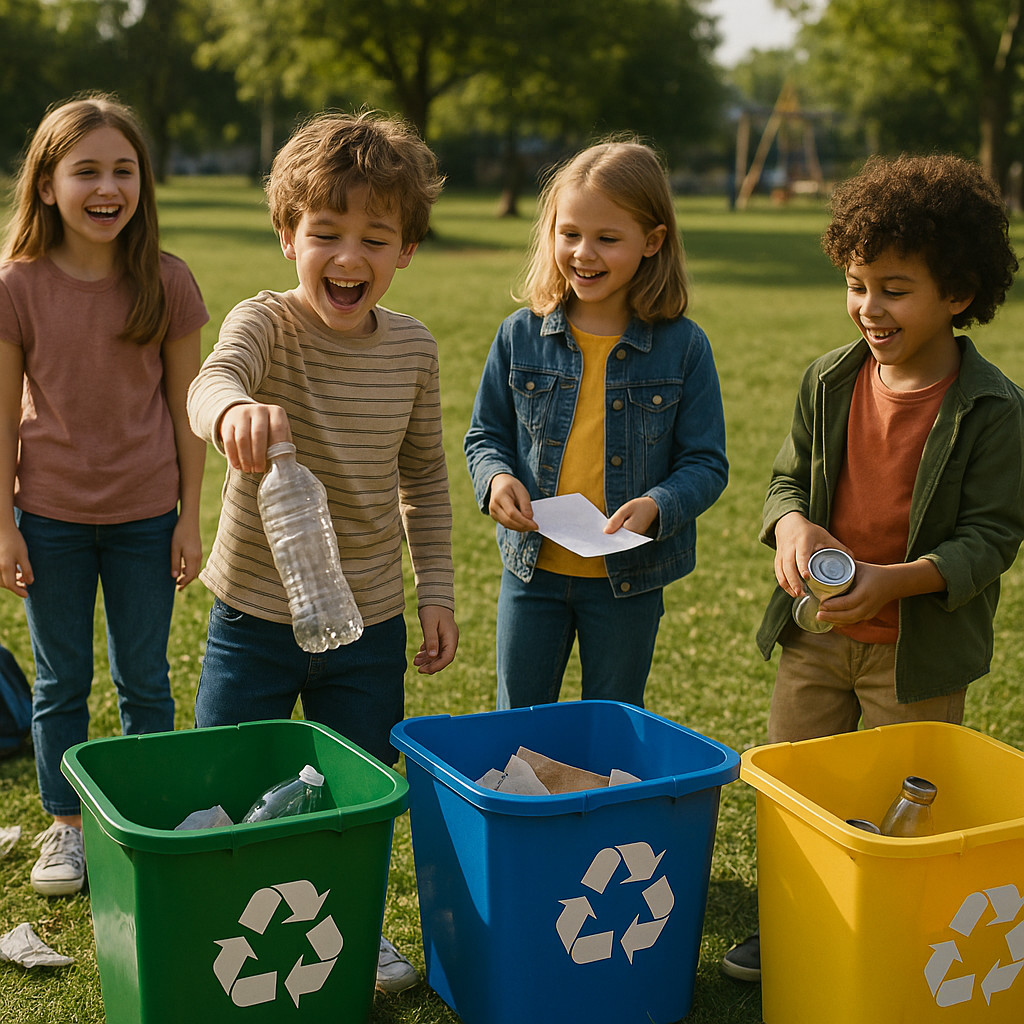
Creating DIY recycling bins allows children to engage with the recycling process. Provide cardboard boxes or containers and let kids decorate them with markers, stickers, or paint. This personalization makes waste sorting more appealing and helps children recognize recycling symbols in public places.
Waste-sorting games teach children which items belong in which bins. Set up a timed challenge where kids sort mixed recyclables into the correct containers. Online games from the Environmental Protection Agency also offer interactive ways to practice recycling skills from home.
Recycled art projects transform trash into treasure. Children can build robots from cardboard boxes and yogurt containers or create collages from magazines and packaging materials. These activities demonstrate the creative potential in items that might otherwise be discarded.
Homemade toys from recyclables show kids how to repurpose before recycling. Milk jugs become ball catchers, newspaper rolls form structures for tents, and tin cans transform into musical wind chimes. These projects cultivate innovation while reinforcing sustainability concepts.
Visual learning tools make the recycling process more tangible. Short videos explaining how recycling works or colorful posters displaying recycling facts help children understand the environmental impact of their actions. One compelling statistic to share: recycling one ton of paper saves 17 trees and enough energy to power a home for five months.
Recycling scavenger hunts take the learning outdoors. Visit a local park and challenge children to collect recyclable items littering the environment. For kids who enjoy competition, turn it into a race to see who can gather the most recyclables in a set time.
Field trips to recycling centers provide real-world context. Witnessing the sorting and processing of recyclable materials firsthand creates lasting impressions about waste management systems. This exposure helps children connect their home recycling habits to the larger environmental impact.
Starting a recycling club enables children to become environmental leaders. Help your child organize an initiative at school or in your neighborhood where they can teach peers about proper recycling practices. This responsibility fosters confidence and reinforces their own recycling knowledge.
Seed paper projects demonstrate paper recycling in action. Instead of tossing shredded paper in the recycling bin, help children transform it into plantable paper embedded with seeds. This activity shows how recycled materials can create something entirely new and beneficial for the environment.
Waste-free lunch challenges teach practical sustainability skills. Encourage kids to use reusable containers instead of disposable bags and wrappers. This daily practice builds lifelong habits that reduce single-use packaging waste.
| Age Group | Activity | Description |
|---|---|---|
| Preschoolers | Make Seed Paper | Create colorful paper with seeds from used paper. |
| Preschoolers | Recycled Building Activity | Build structures using materials like egg cartons and cereal boxes. |
| Preschoolers | Recycled Earth Day Craft | Create art using cereal boxes and scrap paper for Earth Day. |
| Toddlers | Bottle Cap Sorting | Sort colorful bottle caps to develop motor skills. |
| Toddlers | Egg Carton Caterpillar | Transform egg cartons into caterpillars to boost creativity. |
How Can We Incorporate Recycling into Daily Life?
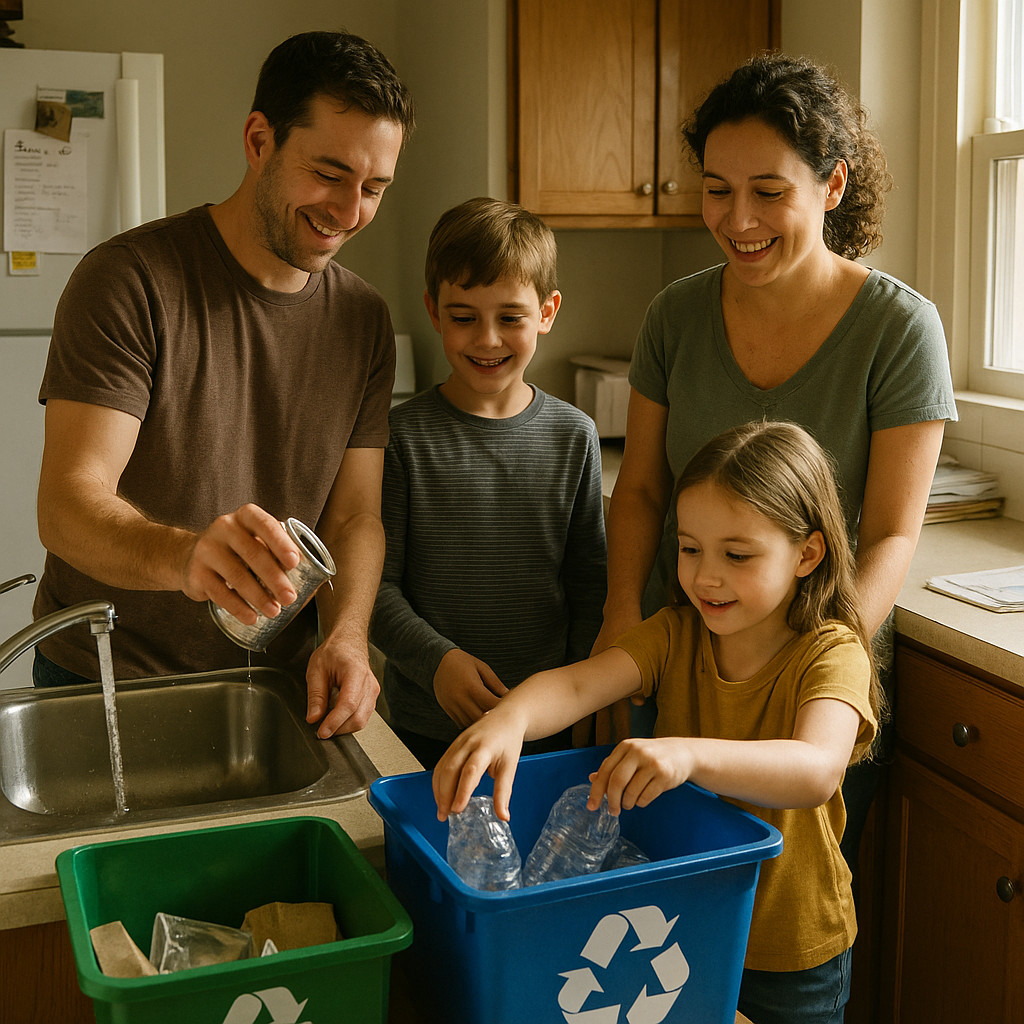
Making recycling a natural part of daily life begins with establishing simple, consistent habits. At home, designate specific containers for different recyclables—paper, plastic, glass, and metal. Place these bins in convenient locations where waste typically accumulates, such as the kitchen, home office, or garage. The easier the access, the more likely family members will use them correctly.
For children, turn recycling into an engaging activity rather than a chore. Create colorful labels with pictures showing which items belong in each bin. This visual guidance helps young ones learn proper sorting without feeling overwhelmed. You might even introduce a small reward system for consistent participation, celebrating when they remember to recycle properly.
Establishing a regular routine for recycling collection is crucial. Set a specific day each week to empty household recycling bins into community collection containers. Getting children involved in this process helps reinforce the importance of waste management while teaching responsibility. Many municipalities now offer recycling pickup services alongside regular trash collection, making the process even more convenient.
In schools, recycling can become an educational opportunity. Position labeled recycling stations in classrooms, cafeterias, and hallways. Students can take turns monitoring these stations, ensuring proper sorting while learning about materials management. This hands-on approach makes recycling meaningful rather than abstract.
Embracing Reusable Alternatives
Perhaps the most impactful way to incorporate recycling principles into daily life is by reducing waste creation in the first place. Reusable items play a crucial role in this effort. Start by replacing single-use plastic water bottles with durable, washable bottles. A quality reusable water bottle can prevent hundreds of plastic bottles from entering the waste stream each year.
Shopping bags represent another simple switch. Keep a collection of reusable bags in your car or by the door to grab before heading to stores. Children can have their own special shopping bags, encouraging them to participate in this eco-friendly habit from an early age.
Lunch packaging generates significant waste in schools. Swap disposable sandwich bags and pre-packaged snacks for washable containers and reusable wraps. Bento-style lunch boxes with compartments eliminate the need for single-use packaging entirely. Not only does this reduce waste, but it often results in healthier food choices and cost savings over time.
When purchasing school supplies, look for products made from recycled materials or those designed for longevity. Refillable pens, metal pencil cases, and sturdy binders can last for years, unlike their disposable counterparts that quickly end up in landfills.
Teaching Proper Waste Separation
Understanding what can and cannot be recycled forms the foundation of effective recycling habits. Take time to learn your local recycling guidelines, as these vary by community. Many recycling facilities provide educational materials specifically designed for children that explain the recycling process in age-appropriate language.
Beyond traditional recyclables, introduce children to the concept of composting. Food scraps, yard waste, and certain paper products can be transformed into valuable soil rather than sent to landfills. A simple countertop compost collector makes this practice accessible even in small homes or apartments.
Special items require special handling. Batteries, electronics, and certain household chemicals should never go into regular recycling or trash. Instead, teach children about proper disposal methods for these potentially hazardous materials. Many communities host periodic collection events for these items, providing an opportunity to discuss why certain materials require different handling.
For older children, explore the complete lifecycle of products. Understanding how materials are extracted, manufactured, used, and disposed of helps them see recycling as part of a larger system rather than an isolated action. This knowledge often inspires more thoughtful consumption habits.
Remember that children learn best by example. When parents and teachers consistently practice recycling and waste reduction, young people internalize these behaviors as normal and necessary. By incorporating these practices into daily routines at home and school, recycling becomes simply “what we do” rather than an extra task to remember.
These everyday habits may seem small individually, but collectively they create significant positive environmental impact while shaping a generation that views resource conservation as standard practice.
What Resources Are Available for Teaching Kids About Recycling?
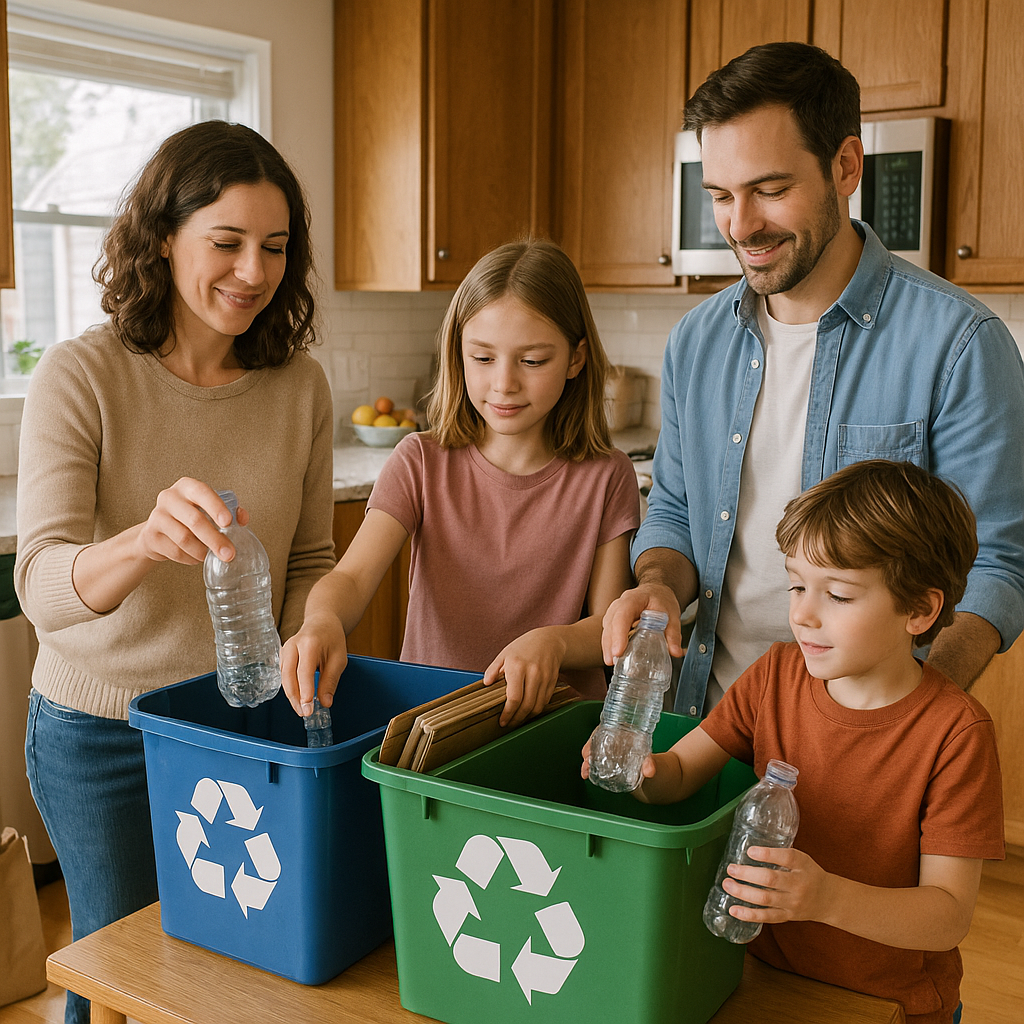
Educational resources for teaching kids about recycling have become increasingly creative and engaging, making environmental awareness both fun and impactful. Modern approaches combine hands-on activities with digital content to help children understand the importance of waste reduction and proper recycling practices.
Interactive games serve as powerful educational tools for recycling education. Sorting games help children learn to identify different recyclable materials and place them in appropriate bins. These games can be easily created at home using colored containers labeled for paper, plastic, glass, and metal. For a more competitive edge, recycling relay races or scavenger hunts encourage children to find recyclable items around the house while learning about their environmental impact.
Crafting activities using recycled materials teach children about reusing items and reducing waste. Simple projects like toilet paper roll binoculars, milk carton bird feeders, or newspaper collage art demonstrate how everyday items can be transformed instead of discarded. These hands-on activities reinforce the concept that many items have value beyond their initial use.
Several websites offer comprehensive recycling education resources. The Recycle Guide provides classroom materials, lesson plans, and interactive tools designed to align with educational standards. These resources help teachers engage students in meaningful environmental conversations while teaching core concepts about sustainability.
Project3R™, a non-profit organization, focuses specifically on recycling education and environmental awareness worldwide. Their materials are designed to build eco-friendly habits from an early age and help children understand the impact of waste on the environment.
For parents looking for less structured activities, websites like ryansrecycling.com showcase how young people can make a difference through recycling initiatives. These sites often include merchandise that raises awareness and funds for environmental causes while inspiring children to take action in their own communities.
Educational books and videos also play an important role in recycling education. Titles like “The Adventures of a Plastic Bottle” and songs about reducing, reusing, and recycling make learning memorable and fun for young children. These resources often explain complex environmental concepts in age-appropriate ways.
Many local recycling centers and waste management facilities offer educational programs and tours specifically designed for children. These field trips provide firsthand experience with recycling operations and help children understand what happens to materials after they’re placed in recycling bins.
Digital apps and online games provide interactive learning experiences that can be accessed anytime. These technology-based resources often include rewards and achievements that motivate children to learn more about environmental conservation and proper recycling practices.
By utilizing these diverse resources, parents and educators can help children develop sustainable habits that will benefit our planet for generations to come.
| Resource | Description |
| Recycle Right® Elementary Curriculum | Interactive learning opportunities focusing on proper recycling habits for grades K-2 and 3-5. |
| Recycling Sorting Game | Helps kids learn waste separation basics with a sorting game using labeled bins for paper, plastic, metal, and compost. |
| DIY Recycled Crafts | Encourages creativity with crafts like Toilet Paper Roll Binoculars, Milk Carton Bird Feeder, and Newspaper Collage Art. |
| Recycling Scavenger Hunt | Turns recycling awareness into a fun outdoor adventure with a checklist of recyclable items. |
| Interactive Recycling Relay Races | Engages preschoolers and older children by turning recycling education into a fun competition. |
| Quest for Less | A teacher’s guide with activities and resources for teaching K-8 about reducing, reusing, and recycling. |
Conclusion: Empowering the Next Generation of Eco-Warriors
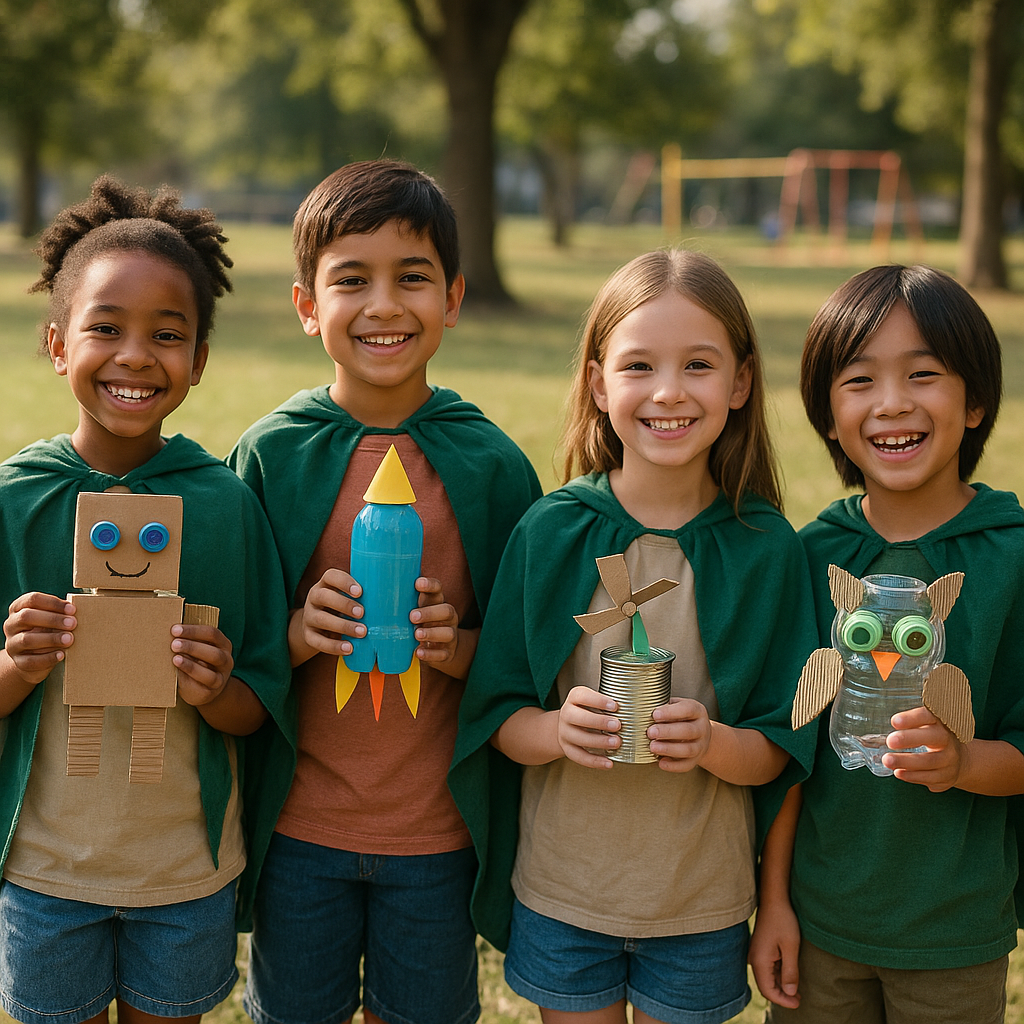
Teaching kids about recycling is a lasting gift for both our planet and the children themselves. Introducing recycling concepts early helps develop environmentally conscious habits that stay with them throughout their lives. These young eco-warriors gain valuable life skills, including critical thinking, responsibility, and empathy for the world around them.
By equipping the next generation with recycling knowledge through engaging activities and inspiring examples, we cultivate environmental stewards who understand the impact of their actions. As these children grow into adults who view recycling as second nature, they become powerful advocates for sustainability in their communities and workplaces. For assistance with your business or organization’s recycling needs, contact Okon Recycling at 214-717-4083.
